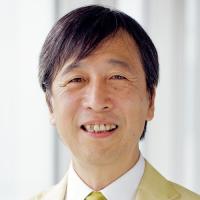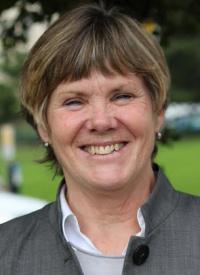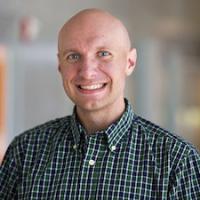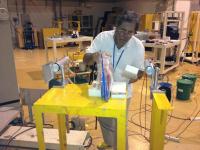Archive for October 2017
Fukushima Accident, Six years on – How an antimatter physicist reacted to the Fukushima Accident
SPEAKER: RYUGO HAYANO EMERITUS PROFESSOR UNIVERSITY OF TOKYO DATE/TIME: MON, 10/30/2017 – 4:00PM TO 5:00PM LOCATION: 3105 ETCHEVERRY HALL Fall 2017 Colloquium Series Abstract: I will first discuss briefly why an “antimatter physicist” started to work actively in Fukushima. I will then focus on the present situation in Fukushima from the radiological protection view point, and discuss what…
Read MoreWorking with Journalists for Better Reporting on Radiation Incidents
SPEAKER: CAROLYN MACKENZIE RADIATION SAFETY OFFICER ASSOCIATE DIRECTOR, ENVIRONMENT, HEALTH & SAFETY DATE/TIME: MON, 10/23/2017 – 4:00PM TO 5:00PM LOCATION: 3105 ETCHEVERRY HALL Fall 2017 Colloquium Series Abstract: Working with Journalists for Better Reporting on Radiation Incidents In the event of a radiation incident such as the use of a dirty bomb or nuclear reactor incident, accurate and swift…
Read MoreTransport Methods for Nuclear Nonproliferation Applications: Deterministic Cost Optimization and Monte Carlo Interface Perturbation Theory
SPEAKER: BRIAN KIEDROWSKI ASSISTANT PROFESSOR DATE/TIME: MON, 10/16/2017 – 4:00PM TO 5:00PM LOCATION: 3105 ETCHEVERRY HALL Fall 2017 Colloquium Series Abstract: Two different particle transport methods currently being developed for the Consortium for Nonproliferation Enabling Capabilities will be presented. The first involves using deterministic calculations to estimate variances and computational times for optimizing variance reduction parameters with a…
Read MoreSpace Radiation and its Impact on Human Exploration of the Solar System
SPEAKER: JACK MILLER, PH.D. GUEST SCIENTIST, MOLECULAR BIOPHYSICS AND INTEGRATED BIOIMAGING DIVISION, LAWRENCE BERKELEY NATIONAL LABORATORY CONSULTANT, NASA AMES RESEARCH CENTER CO-EDITOR FOR PHYSICAL SCIENCES, LIFE SCIENCES IN SPACE RESEARCH DATE/TIME: MON, 10/09/2017 – 4:00PM TO 5:00PM LOCATION: 3105 ETCHEVERRY HALL Fall 2017 Colloquium Series Abstract: Ionizing radiation is known to lead to health effects including cancer, cataracts and…
Read More


